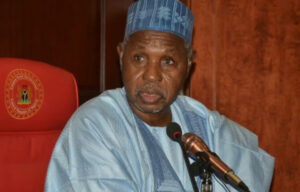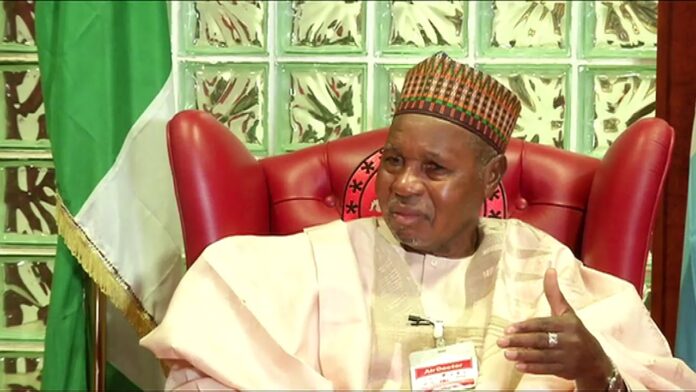Aminu Masari, the Former Speaker of the House of Representatives, issues a stern caution to government officials and the political class regarding the precarious state of Nigeria’s democracy.
Masari emphasizes the urgent need to address the declining faith in the system, particularly among the youth, during his keynote address at the Public Lecture commemorating Nigeria’s 25th Democracy Day anniversary.
Highlighting the results of a 2022 Afrobarometer survey, Masari reveals that while 70% of the Nigerian population prefers democracy, a staggering 77% express dissatisfaction with its performance.
He directs a warning towards contemporary politicians, stressing that the government should not solely serve the interests of politicians, by politicians, and for politicians.

Masari further emphasizes that elected politicians in a representative democracy are merely temporary custodians of power, entrusted by the people.
He emphasizes the need to prioritize the welfare of the populace over personal interests and calls for a deeper understanding and embodiment of democratic values. Masari advocates for the development of a culture that celebrates both gracious winners and humble losers.
The former governor underscores the importance of continuously addressing the shifting perceptions of democracy among Nigerians, cautioning that complacency could undermine its endurance.
He emphasizes that democracy’s true worth lies in its ability to bring tangible benefits to citizens, urging leaders to prioritize poverty reduction, inequality, human capacity development, and the creation of opportunities.
Masari highlights the significance of engaging the youth, who make up a significant portion of Nigeria’s population, and creating an environment that nurtures their growth and encourages their contributions to the nation’s development.
He candidly acknowledges that many young Nigerians are dissatisfied with the current system and are seeking opportunities abroad, highlighting the necessity of creating incentives for them to stay and invest in Nigeria’s future.
Masari concludes by emphasizing that sustaining democracy requires continuous attention to the evolving perception of Nigerians, stressing that the system can only endure when the people perceive it as desirable and worth defending.




